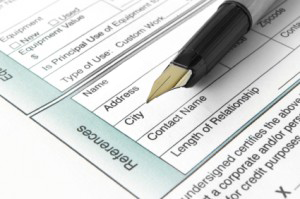Selecting job references when you think you don’t have any may feel like an insurmountable hurdle, so let’s break down the types of references to offer a much larger pool of potential job references to choose from.
 You’re in job search mode and you feel you don’t have any good references because the last couple positions you held did not end well. You’re concerned this may present a problem during a job reference check, and your concerns are correct. Using a supervisor from a company where you left on less than favorable terms may in fact present a challenge during the a reference check from a prospective employer.
You’re in job search mode and you feel you don’t have any good references because the last couple positions you held did not end well. You’re concerned this may present a problem during a job reference check, and your concerns are correct. Using a supervisor from a company where you left on less than favorable terms may in fact present a challenge during the a reference check from a prospective employer.
Another scenario is where your previous supervisor may not have the communication skills necessary to provide a good reference for you, despite his or her best intentions. Either scenario can result in a negative outcome for you.
There are two general types of job references; those reflecting your sequential work history – Work History References and those who are your personally selected or Preferred References. These are not the same references. Work history references may be required by a prospective employer, but not always.
Generally, a prospective employer asks for your list of references and you are in complete control of the references you provide. These job references included on your job reference list do not have to include previous supervisors unless you choose them. Often, previous supervisors may not respond favorably to questions about you or your performance based on their ability to effectively communicate with the prospective employer. This has nothing to do with you or your performance, yet still results in an unfavorable outcome for you.
Using a more holistic approach, consider people you interact with in your daily life such as co-workers, supervisors, managers or vendors. This much larger number of people begins to materialize as potentially high quality references.
Use this list and see how many more potential people you can select to serve as job references, and perhaps have the ability to effectively communicate your best traits. It is recommended to identify 10 to 15 diverse candidates to serve as job references, knowing that not all may be willing or able to deliver the quality necessary to be used as a job reference, once independently verified by a reference checking service.
- Supervisors
- Vendors
- Customers
- Co-workers or former colleagues
- Mentors
- Teachers, instructors
- Coaches
- Community leaders
- Volunteer leaders
- PTA officers
- Church or organizational leaders
- Participants in community sports organizations
- Participants in you hobbies or associations
- Personal relationships
Within a very short period of time you could have many more people who may serve as a good job reference. Once your list contains about 5 to 10 potential references, you will need to have each of these references independently validated prior to use.
Your references should be easy to contact by phone, or returns calls promptly. Your references will be enthusiastic, positive and well-spoken. They will be able to identify and discuss in detail, your skills, talents and abilities, including strengths and maybe even an area where you might improve. Your references will enthusiastically recommend you, but more importantly they are able to articulate why their recommendation is so strong. Using 3 to 5 high performing references capable of effectively communicating your strengths is a tremendous win, and may result in more job offers.
